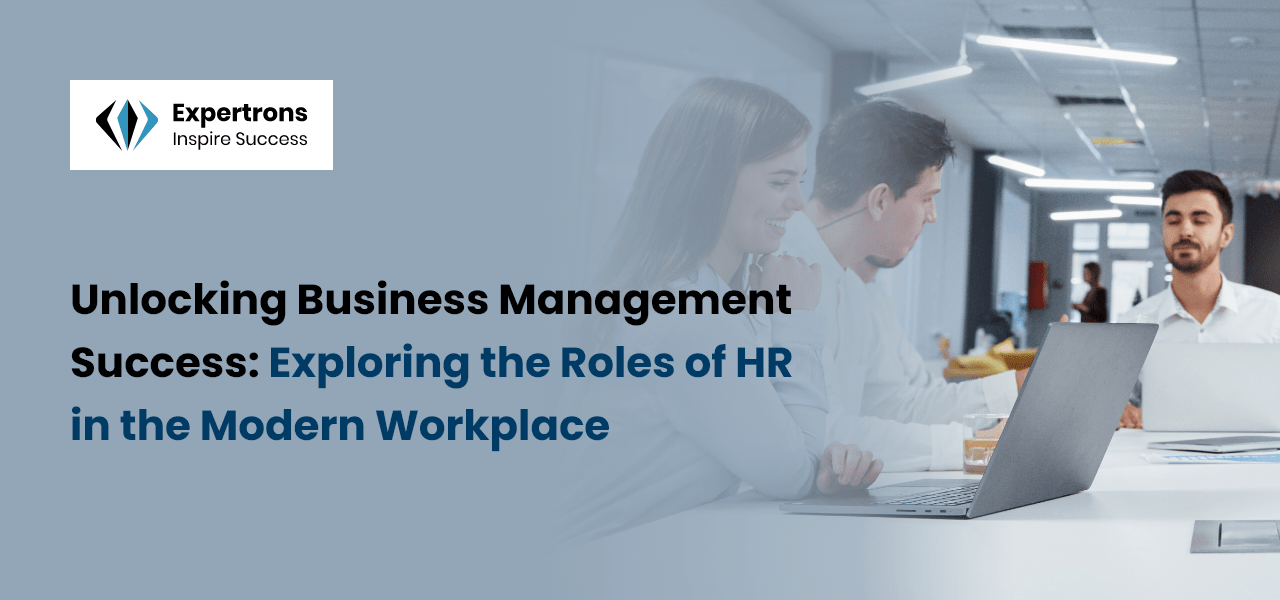Introduction
In today’s dynamic business landscape, the roles of HR (Human Resources) have evolved far beyond traditional administrative functions. HR professionals are now pivotal players in driving organizational success, enhancing employee satisfaction, and navigating the complexities of modern work environments. This article delves into the multifaceted roles of HR in business management, shedding light on how these professionals contribute to the overall health and growth of an organization.
The Evolution of HR: From Personnel Management to Strategic Partner
Historical Perspective
Once upon a time, HR was primarily seen as a department focused on hiring, firing, and payroll. Known as “personnel management,” this function was more administrative than strategic. HR professionals were tasked with ensuring that employees adhered to company policies, processed paperwork, and maintained records.
Modern HR as a Strategic Partner
Fast forward to today, and HR has transformed into a strategic partner in business management. Modern HR professionals are deeply involved in shaping company culture, driving employee engagement, and aligning HR strategies with business objectives. This shift reflects the growing recognition that people are an organization’s most valuable asset.
Core Functions of HR in Business Management
Recruitment and Talent Acquisition
Finding the right talent is crucial for any organization’s success. HR professionals play a vital role in attracting, selecting, and onboarding new employees. They use a combination of job postings, social media, and recruitment agencies to find candidates who align with the company’s values and goals.
Training and Development
Once employees are onboard, HR ensures they have the necessary skills and knowledge to perform their roles effectively. This involves creating training programs, facilitating workshops, and encouraging continuous learning. Investing in employee development not only enhances performance but also boosts morale and retention.
Performance Management
HR is responsible for setting up performance management systems that help employees understand their roles, set goals, and receive regular feedback. This process includes performance appraisals, feedback sessions, and development plans, all aimed at improving employee performance and achieving organizational goals.
Employee Relations
Maintaining a positive work environment is critical for productivity and satisfaction. HR addresses employee concerns, mediates conflicts, and ensures a healthy workplace culture. By fostering open communication and trust, HR helps build strong relationships between employees and management.
Compensation and Benefits
Competitive compensation and benefits packages are essential for attracting and retaining top talent. HR professionals design and manage these packages, ensuring they are fair, competitive, and aligned with industry standards. They also handle payroll, bonuses, and other financial incentives.
The Strategic Role of HR in Organizational Success
Aligning HR Strategy with Business Goals
To drive organizational success, HR must align its strategies with the overall business objectives. This involves understanding the company’s vision, mission, and goals, and developing HR initiatives that support these aims. By doing so, HR helps ensure that the organization has the right people in place to achieve its goals.
Enhancing Organizational Culture
A strong organizational culture can significantly impact employee engagement and productivity. HR plays a key role in shaping and maintaining this culture by promoting company values, encouraging collaboration, and recognizing achievements. A positive culture attracts talent and fosters loyalty.
Driving Change Management
Change is inevitable in any organization. HR professionals are crucial in managing change, whether it’s a company-wide restructuring, the introduction of new technologies, or changes in policies. They help employees navigate these transitions smoothly by providing support, communication, and training.
HR’s Role in Employee Satisfaction and Retention
Creating a Positive Work Environment
A positive work environment is essential for employee satisfaction and retention. HR ensures that the workplace is safe, inclusive, and supportive. They implement policies that promote work-life balance, address workplace issues promptly, and foster a culture of respect and collaboration.
Employee Engagement Initiatives
Engaged employees are more productive and committed to their work. HR designs and implements initiatives that boost engagement, such as recognition programs, team-building activities, and feedback mechanisms. These initiatives help employees feel valued and connected to the organization.
Career Development Opportunities
Providing career development opportunities is a key factor in retaining talent. HR facilitates career growth by offering training programs, mentorship, and clear career paths. By investing in their employees’ future, companies can reduce turnover and build a skilled workforce.
Technology and HR: Embracing the Digital Revolution
HR Information Systems (HRIS)
Technology has revolutionized HR practices. HR Information Systems (HRIS) streamline processes such as recruitment, payroll, and performance management. These systems improve efficiency, accuracy, and data management, allowing HR professionals to focus on strategic initiatives.
Recruitment Automation and AI
Automation and AI are transforming the recruitment process. Tools such as applicant tracking systems (ATS) and AI-powered assessments help HR professionals identify the best candidates quickly and efficiently. These technologies reduce bias, improve candidate experience, and save time.
Employee Self-Service Portals
Employee self-service portals empower employees to manage their information, benefits, and requests independently. These portals enhance convenience, reduce administrative burden, and increase transparency. HR can focus on more strategic tasks while employees handle routine inquiries.
HR Challenges in the Modern Workplace
Navigating Remote Work
The shift to remote work has presented new challenges for HR. Ensuring effective communication, maintaining productivity, and supporting employee well-being in a remote setting require innovative solutions. HR must adapt policies and practices to support a distributed workforce.
Diversity and Inclusion Initiatives
Diversity and inclusion are critical for a thriving workplace. HR leads efforts to create an inclusive environment by promoting diversity, addressing biases, and implementing policies that support all employees. These initiatives enhance creativity, innovation, and employee satisfaction.
Legal and Compliance Issues
HR must navigate a complex landscape of legal and compliance issues. This includes understanding labor laws, managing employee contracts, and ensuring compliance with regulations. HR professionals must stay updated on legal changes to protect the organization and its employees.
Case Studies: HR Success Stories
Implementing a Successful Onboarding Program
A well-structured onboarding program can significantly impact employee retention and performance. Expertrons’ Advanced General Management Program in Human Resources in association with E&ICT Academy IIT Guwahati implemented an onboarding program that reduced new hire turnover by 30%. The program included orientation sessions, mentorship, and ongoing support, helping new employees integrate smoothly.
Boosting Employee Morale through Recognition Programs
Recognition programs can boost employee morale and engagement. Expertrons introduced a peer recognition platform where employees could acknowledge each other’s achievements. This initiative led to increased employee satisfaction, higher productivity, and a stronger sense of community within the organization.
The Future of HR: Trends and Predictions
The Rise of People Analytics
People analytics is becoming a key tool for HR professionals. By analyzing employee data, HR can make informed decisions about recruitment, retention, and development. People analytics helps identify trends, predict future needs, and measure the impact of HR initiatives.
Emphasis on Employee Wellbeing
Employee wellbeing is gaining more attention in HR strategies. Organizations are focusing on mental health, work-life balance, and overall wellness to ensure employees are healthy and productive. HR professionals are implementing wellness programs, providing resources, and fostering a supportive work environment.
The Gig Economy and HR
The gig economy is reshaping the workforce. HR must adapt to manage a mix of full-time employees, freelancers, and gig workers. This involves developing flexible policies, ensuring fair compensation, and integrating gig workers into the company culture. HR plays a crucial role in navigating this new landscape.
Also read, Innovative Approaches to Human Resource Management Training
Conclusion: The Ever-Evolving Role of HR in Business Management
The roles of HR in business management are continually evolving, reflecting the changing needs of organizations and employees. From strategic planning to employee engagement, HR professionals are at the forefront of driving organizational success. By embracing new technologies, promoting a positive culture, and addressing modern challenges, HR ensures that organizations are equipped to thrive in an ever-changing business environment.
Frequently Asked Questions
The primary roles of HR in business management include recruitment and talent acquisition, training and development, performance management, employee relations, and compensation and benefits. HR also plays a strategic role in aligning HR initiatives with business goals, enhancing organizational culture, and driving change management.
HR contributes to employee satisfaction and retention by creating a positive work environment, implementing employee engagement initiatives, and providing career development opportunities. These efforts help employees feel valued, supported, and connected to the organization, leading to higher retention rates.
Technology has significantly impacted HR practices by streamlining processes, improving efficiency, and enhancing data management. Tools such as HR Information Systems (HRIS), recruitment automation, and employee self-service portals have transformed how HR professionals manage recruitment, payroll, and employee information.
Common HR challenges in the modern workplace include navigating remote work, promoting diversity and inclusion, and managing legal and compliance issues. HR professionals must adapt to these challenges by developing innovative solutions, implementing supportive policies, and staying updated on legal changes.
Trends shaping the future of HR include the rise of people analytics, an emphasis on employee wellbeing, and the growing influence of the gig economy. HR professionals are leveraging data to make informed decisions, focusing on employee health and wellness, and adapting to manage a diverse workforce that includes freelancers and gig workers.











